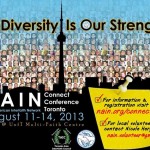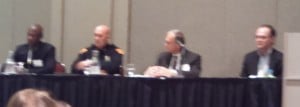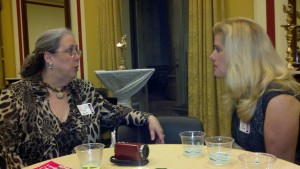 Oppositional culture. I was very struck by this phrase when I first ran across it years ago in Sabina Magliocco’s Witching Culture: Folklore and Neo-Paganism in America (an excellent read, by the way). It’s a term that’s used in education, but here I recognize it as an apt label for a rut that often trips up us Pagans. We define ourselves as what we are not, grasping for ways to articulate who we are while simultaneously over-anxious to distance ourselves from that which makes us skittish – most often the monotheistic religion of our birth.
Oppositional culture. I was very struck by this phrase when I first ran across it years ago in Sabina Magliocco’s Witching Culture: Folklore and Neo-Paganism in America (an excellent read, by the way). It’s a term that’s used in education, but here I recognize it as an apt label for a rut that often trips up us Pagans. We define ourselves as what we are not, grasping for ways to articulate who we are while simultaneously over-anxious to distance ourselves from that which makes us skittish – most often the monotheistic religion of our birth.
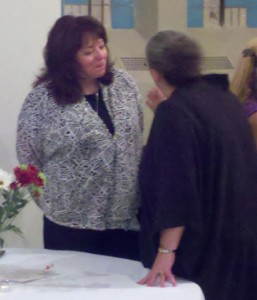 There’s nothing wrong with being different, or disagreeing, but the rut becomes a sinkhole when we forget how to stand on common ground with others. I was always the odd duck as a child, the one who dressed funny, read things no one else had heard of, stood up for ideals like a clean environment when others were busy learning to smoke, drive and apply for college. As I explained in Part I of “Them and Us,” I came out of the box swinging my bat; it was only later that I learned about how long you have to run to get around the bases, how hot it can be standing in outfield, or just how essential it is to work as a team.
There’s nothing wrong with being different, or disagreeing, but the rut becomes a sinkhole when we forget how to stand on common ground with others. I was always the odd duck as a child, the one who dressed funny, read things no one else had heard of, stood up for ideals like a clean environment when others were busy learning to smoke, drive and apply for college. As I explained in Part I of “Them and Us,” I came out of the box swinging my bat; it was only later that I learned about how long you have to run to get around the bases, how hot it can be standing in outfield, or just how essential it is to work as a team.
Perhaps in my lifetime we’ll see an end to the proverbial “witch wars.” But in some ways those conflicts seem to have simply picked up and moved to a different neighborhood, taking up with a new set of issues. The issues nowadays are often more global – diversity, human rights, theology, defining Paganism and Pagan practice, for example. For all the loftiness of subject, however, we still look for how we are different, rather than what we have in common and how we can work together.
I needed meaty causes to define myself at one time in my life. Oh, I believed in them, wholeheartedly. No doubt, there were elders around me at the time who looked at me and thought, you were still on the playground when we were meeting with Dr. King, or wondered if I’d heard of suffragettes. Yes, it’s true – none of us here discovered equal rights, LGBT rights, sensitivity to tribal issues, or one of a dozen or more issues on which contemporary Pagans now regularly pontificate.
Am I pontificating a bit here? Probably, but my intention is to urge us all to treat each other with more deference, greater humility, and the benefit of the doubt. We are a new religious movement, to use the language of the academy. Even so, times change rapidly in today’s culture. We can take a few lessons from the interfaith movement and apply them internally. Care for others, act like you care, speak like you care, show respect for differences – you know, the sandbox stuff.
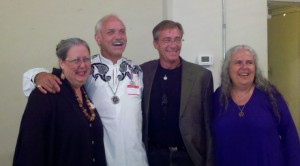 Our differences are part of what make us a beautiful planet. Let’s make sure we don’t let them turn us into a quicksand of them and us.
Our differences are part of what make us a beautiful planet. Let’s make sure we don’t let them turn us into a quicksand of them and us.
Them and Us Part I – Coming of Age Late in Life
Them and Us Part II – The Metaphysics of Unity and Separation


